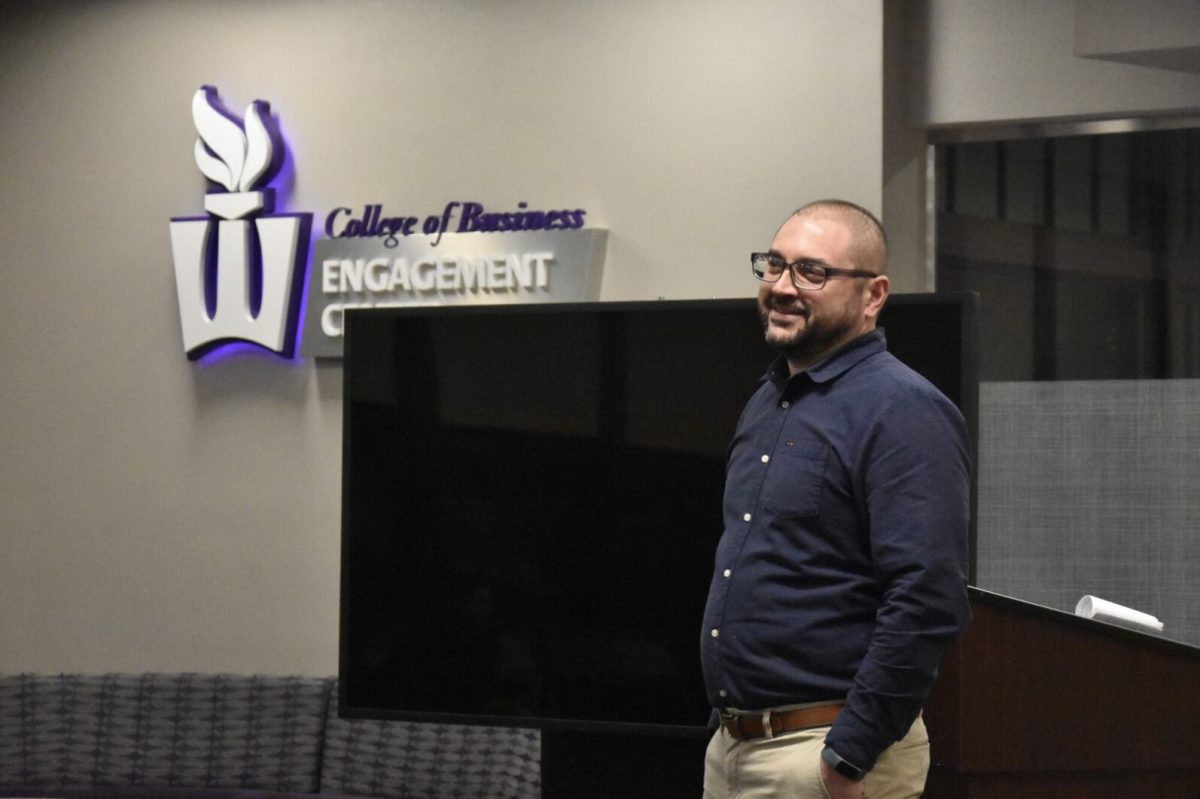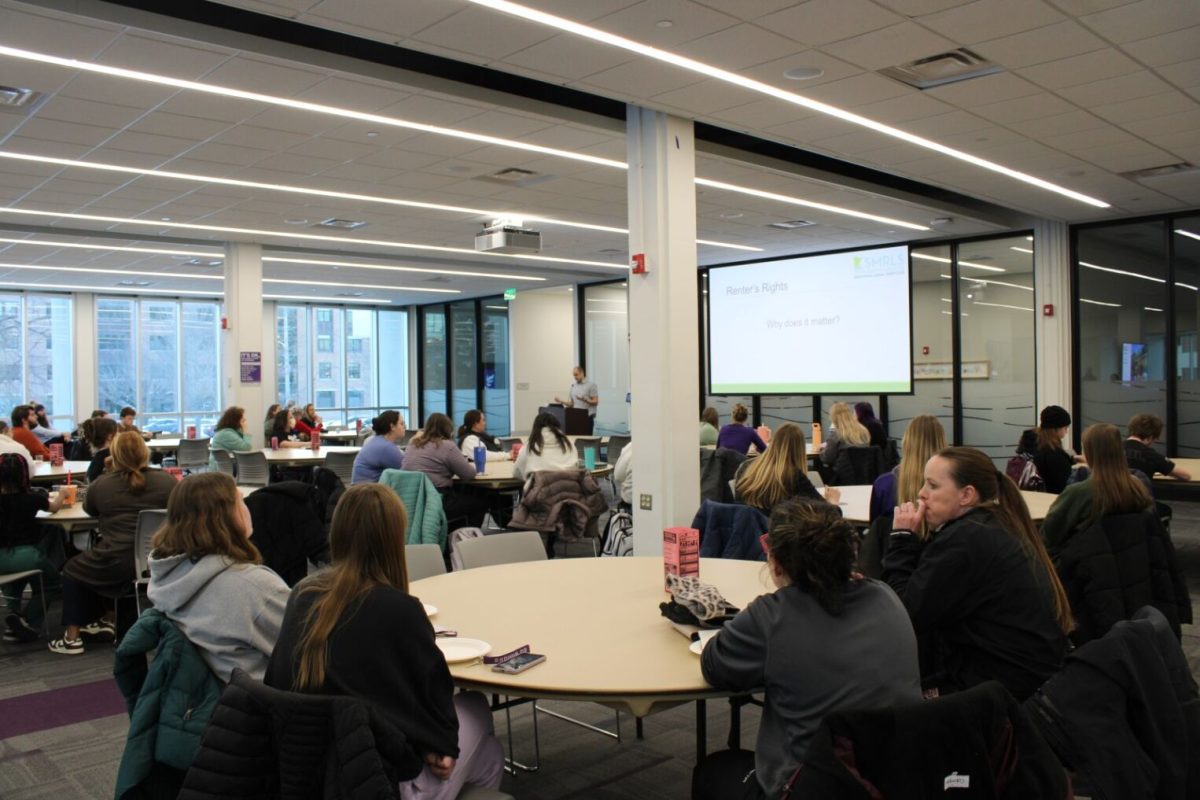Hannah Jones/Winonan
How will our time be remembered?
Someday, when future college students are cracking open their textbooks the day before their first history midterm, what will they find on the 2012 election? The BP oil spill? The 2001 Sept. 11 terrorist attack? Having never seen these events for themselves, they’d have to trust whatever they were reading to make their judgments about the past— and the future.
Now, consider this: what if what they read was false?
That’s the issue that James Loewen, sociologist and best- selling author, addressed in the presentation of his book, “Lies My Teacher Told Me: Everything Your High School History Textbook Got Wrong.”
Loewen’s presentation focused specifically on an event that haunted every one of our U.S. History classes from grade one onward: the American Civil War. Clicking on an old projector, he displayed four possible causes for the secession of the South and asked his audience to vote on the one they believed was the most accurate.
The nominees were: 1.Slavery
2.Sates’ Rights
3.The Election of Abraham Lincoln
4.Tariffs and Taxes
Everyone in the room cast his or her vote, reaching back into the droves of remembered knowledge from middle and high school. After a quick tally, it was found that the most popular answer in the room was “States’ Rights,” which won by only a small margin over “Slavery.” Loewen surveyed the results with an unsurprised nod of his head. Apparently, they had been much the same in Rochester the day before; states rights’ continually came out on top. He then informed us, matter- of-factly, that that was wrong.
When South Carolina called for a convention in 1860 and drew up a document articulating their desire for secession, they included several specific causes behind their decision in writing. One of the deciding factors that led to the secession was a high disapproval rate of the recent practices of Northern states. At that time, the 1850 Fugitive Slave Clause in Article IV of the Constitution was still in effect. This law required citizens to aid in the capture and return of runaway slaves, including detention and trial proceedings. Several northern states were resisting the law through various legal loopholes. The declaration drawn up in South Carolina in December of 1860 condemned the North for twisting national law and acting independently of the national government in order to aid fleeing slaves.
In other words, they were against the right of the northern states to do this.
That would indicate, Loewen said, that the cause of the South’s secession was not, in fact, outrage over the national government encroaching on the freedom of states, but just the opposite. This, according to Loewen, implicates the true cause of the South’s secession to be—you guessed it—slavery. And yet, more than half the people in the room remembered learning otherwise. With more and more textbooks leaning the other direction, Loewen fears the youth of America is receiving an inaccurate education based on racism in America re-writing history to explain away the nation’s simultaneously fighting a war to free black slaves and mistreating Indians and immigrants.
What we know about our past directly impacts how we write our future. Loewen’s presentation revealed the power of discourse to alter history, and the consequences of forgetting the events that brought us to where we are today. This is one history lesson that we all need to take to heart, lest future students misinterpret our era when they read about it in their textbooks.
That is, assuming they still have textbooks in the future.
Contact Hannah at HJones09@winona.edu









































